Farnoosh Torabi's Blog, page 72
October 20, 2011
Dr. Oz: Save $1,000 on Health Costs
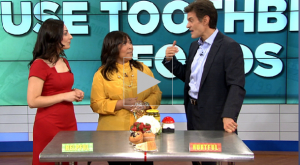 I had the honor of visiting the The Dr. Oz Show to explain ways to save on health-related costs. Click on these links to check out mini clips from our segment:
I had the honor of visiting the The Dr. Oz Show to explain ways to save on health-related costs. Click on these links to check out mini clips from our segment:
Part I: Getting Healthy on the Cheap
Part II: Getting Healthy on the Cheap
Part III: Getting Healthy on the Cheap

October 19, 2011
Good Day NY: Skirt Bank Fees
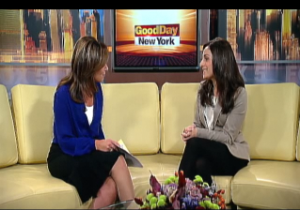 I stopped by Good Day New York this morning to discuss ways to lower your bank fees. Check out the clip!
I stopped by Good Day New York this morning to discuss ways to lower your bank fees. Check out the clip!
Tips For Lowering Bank Fees: MyFoxNY.com

October 18, 2011
Secure Your Paycheck
 Freelancing, as opposed to working a traditional 9 to 5 job, can feel liberating, but it can carry some financial risks. For one, you're not guaranteed a timely paycheck, and – according to a recent study – there is the unfortunate chance of getting ripped off by a dishonest company. A Rutgers University economist found that freelancers were unable to collect an average $4,600 last year.
Freelancing, as opposed to working a traditional 9 to 5 job, can feel liberating, but it can carry some financial risks. For one, you're not guaranteed a timely paycheck, and – according to a recent study – there is the unfortunate chance of getting ripped off by a dishonest company. A Rutgers University economist found that freelancers were unable to collect an average $4,600 last year.
For the self-employed, here's some advice to help ensure you never get stiffed:
Screen Clients
See what previous contractors are saying about a company before agreeing to any terms. Check out the freelancer forum at FreelanceSwitch.com and try a Google search for the company's name in the blogosphere at Google.com/blogs. The Freelancers Union also has a new "Client Scorecard," where freelancers leave reviews for companies.
Request a Down-Payment
For big projects, as part of your agreement with a client, request a reasonable down-payment – perhaps 15% or 20% of the project's total fee – that will be applied towards the final payment. This will, at least, offer some security, in case the client bails. It also incentivizes the client to pay you on time.
Have a Contract
"Deadbeat companies are pros at offering verbal contracts with no paper trail," says Sara Horowitz, Founder and Executive Director the Freelancers Union. "So many freelancers kick themselves for doing business on just a handshake." Another free tool from the Freelancers Union is the "Contract Creator," which helps you create and customize your own contract to ensure a client pays on time.
Invoice Promptly
Invoice your client right away via e-mail and/or traditional mail. If it's a short project of just a few weeks in length, invoice promptly at the end of the term. If it's a lengthier project, invoice twice a week in smaller amounts. All invoices should include both parties' names, project date title, date of invoice, your social security or business ID number and a description of the completed work.
Photo source: Carbon NYC on Flickr
[image error]
October 12, 2011
Today Show: Unemployment Tips
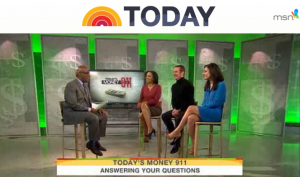 On this morning's Money 911, we address some of your biggest financial questions, including how to pay down debt and prepare for unemployment. Check out the clip!
On this morning's Money 911, we address some of your biggest financial questions, including how to pay down debt and prepare for unemployment. Check out the clip!
Visit msnbc.com for breaking news, world news, and news about the economy

October 11, 2011
Cleaning Up an ID Theft Mess
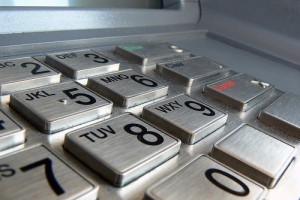 Police unveiled one of the largest identity theft scandals in New York last week, with authorities busted 111 suspects tied to a global crime ring based largely in Queens. Using stolen credit card data, the thieves rang up millions of dollars worth of luxury merchandise and services all over the world.
Police unveiled one of the largest identity theft scandals in New York last week, with authorities busted 111 suspects tied to a global crime ring based largely in Queens. Using stolen credit card data, the thieves rang up millions of dollars worth of luxury merchandise and services all over the world.
For the unfortunate victims of this crime – or any ID theft scandal – they will need to clean up the mess on their own. Here's some immediate advice:
Place a Fraud Alert
Contact one of the three major credit-reporting agencies – TransUnion, Equifax or Experian – to place a fraud alert on your file, which should prevent more false accounts from being opened in your name. According to the Federal Trade Commission, you need only contact one of the agencies since it is required to tell the other two to place a fraud alert on their versions of your credit report, as well. Here's their contact info:
TransUnion: 1-800-680-7289; www.transunion.com
Equifax: 1-800-525-6285; www.equifax.com
Experian: 1-888-EXPERIAN (397-3742); www.experian.com
Review Your Credit Reports
When you place a fraud alert on your credit file, you're able to receive a free copy of your credit report, one from each of the three agencies. Check your reports for any incorrect information.
Close Bogus Accounts
If a thief has opened any credit cards or bank account illegally in your name, you should dispute the information found on your credit report by notifying both the credit-reporting agency that lists the false information, as well the fraud department at the related bank or creditor. Banks and creditors should issue you cards with new account numbers. You should change all your related PINs and passwords, as well.
Tell the Police and the FTC
Notify your local police department and get a copy of the police report, which will offer great backup support when you're trying to make your case with creditors and the credit bureaus.
photo courtesy: Catatronic's photostream on Flickr

Yahoo: Get a 20% Raise
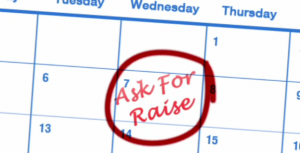 In this week's Financially Fit video on Yahoo!Finance, we tackle a common workplace topic: asking for a raise. It may seem impossible to do so in this economy, but experts say now is actually a smart time to act. As the economy improves, employers will want to keep their top talent happy, all to avoid turnover. I spoke with career expert and founder of WORKS, Nicole Williams. Check out our video below:
In this week's Financially Fit video on Yahoo!Finance, we tackle a common workplace topic: asking for a raise. It may seem impossible to do so in this economy, but experts say now is actually a smart time to act. As the economy improves, employers will want to keep their top talent happy, all to avoid turnover. I spoke with career expert and founder of WORKS, Nicole Williams. Check out our video below:

October 6, 2011
MoneyWatch: What NOT To Buy at the Drugstore
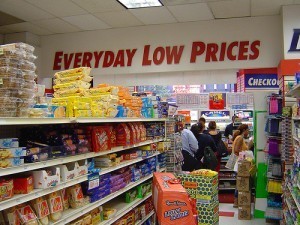 It never occurs to me to do my grocery shopping at the drugstore — although my local Duane Reade pharmacy has recently been making a strong push for it by expanding its food aisles and adding ready-to-eat meals.
It never occurs to me to do my grocery shopping at the drugstore — although my local Duane Reade pharmacy has recently been making a strong push for it by expanding its food aisles and adding ready-to-eat meals.
But it turns out that plenty of people do find it convenient to one-stop-shop — and they're paying for the privilege, according to a new survey.
ConsumerWorld.org, a consumer education web site, just conducted a pricing survey in the Boston area, tracking 25 common grocery items — both foods and household products. It found the average drugstore charged 50% more than the least expensive supermarket: $102.94 vs. $68.55 for the basket of goods studied.
Stores in the survey included: Walgreens, Rite Aid, CVS, Stop & Shop, Shaw's and Market Basket. (An earlier MoneyWatch package found a more nuanced set of choices for CVS shoppers: Cereal and bottled water were no-nos, but milk was actually cheaper than at the supermarket.)
For a breakdown of the wide price comparisons from the survey, check out my full article on MoneyWatch.com.

October 4, 2011
3 Ways to Avoid Bank Fees
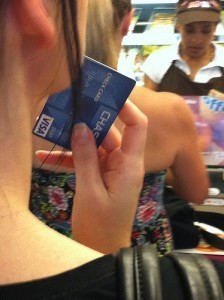 How much do you pay to bank? Over the course of a year, adding up ATM, overdraft, account maintenance and check processing fees (to name a few), how much are you actually paying to save?
How much do you pay to bank? Over the course of a year, adding up ATM, overdraft, account maintenance and check processing fees (to name a few), how much are you actually paying to save?
The math, as we know, is getting uglier, as bank fees soar. Fed up? Here's how to stay in control of your money and avoid bank fees:
Switch to Fee-Free Checking…It Does Exist.
While fee increases are beyond our control, we don't have to stand for them. It will take time and effort, but we can always switch to a different bank with fee-free checking. According to Bankrate.com, 45% of banks still offer this type of account. Begin by searching at credit unions and community banks.
Qualify For Fewer or No Fees
If you're resistant to switching banks, at least find out how to minimize your exposure to fees. At some banks, as long as account holders do one or a combination of things, they may be exempt from certain fees. For example, at Wells Fargo, Value Checking account customers face a $5 monthly fee unless they sign up for direct deposit or maintain an average daily balance of $1,500. At Sovereign Bank, Classic Checking account customers can also avoid a $5 monthly fee by maintaining a $500 average daily balance.
Opt Out of Overdraft Protection
The average overdraft protection fee rose to $30.83 this year – a new record. This optional protection kicks in when we try to make a purchase with "insufficient funds" in our checking account. Banks save us the embarrassment of being rejected at the cash register and will take money from one of our other linked accounts and toss it into checking to cover the transaction. Convenient? I guess, though hardly a smart way to save.
Photo courtesy: Unlisted Sighting on Flickr

September 28, 2011
MoneyWatch: Charity Without Cash
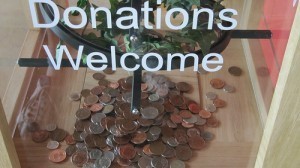 Cash contributions to charities and religious organizations fell more than 5% in 2010, according to new survey results from the Bureau of Labor Statistics. It was the second-biggest category decline, following entertainment spending.
Cash contributions to charities and religious organizations fell more than 5% in 2010, according to new survey results from the Bureau of Labor Statistics. It was the second-biggest category decline, following entertainment spending.
To some extent, that's understandable: Many Americans are still struggling financially. But donating money doesn't mean you have to write a big check. If you're interested in giving — but are short on cash — consider my 5 alternative strategies:
Apply Credit Card Points
Wondering how to spend your credit card points? See if you can turn them into a charitable donation. The MembersGive program at American Express, for example, lets all AmEx customers with points-based rewards cards redeem those points as a donation to any of the charities listed onGuideStar.org. Charities get $10 for every 1,000 points you redeem, and you pay no transaction fee when converting points into donations. (Those who donate their cash-back rewards, though, must pay a 2.25% transaction fee). Donations are tax-deductible.
Discover four more ways to give cash without writing a check by reading the full blog at MoneyWatch.
Photo source: Howard Lake's photo stream on Flickr

September 27, 2011
Cashing in on Your Car
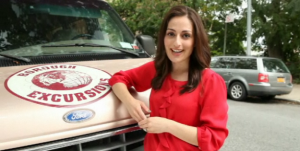 In today's uncertain economy making some extra income by launching a side business may sound appealing, but without start-up capital, you may be limited to your existing skills and assets. But there's one asset you may not even realize you can leverage: your car. It could be the driving force behind your next big idea. Check out our latest Financially Fit video on Yahoo!Finance below:
In today's uncertain economy making some extra income by launching a side business may sound appealing, but without start-up capital, you may be limited to your existing skills and assets. But there's one asset you may not even realize you can leverage: your car. It could be the driving force behind your next big idea. Check out our latest Financially Fit video on Yahoo!Finance below:




